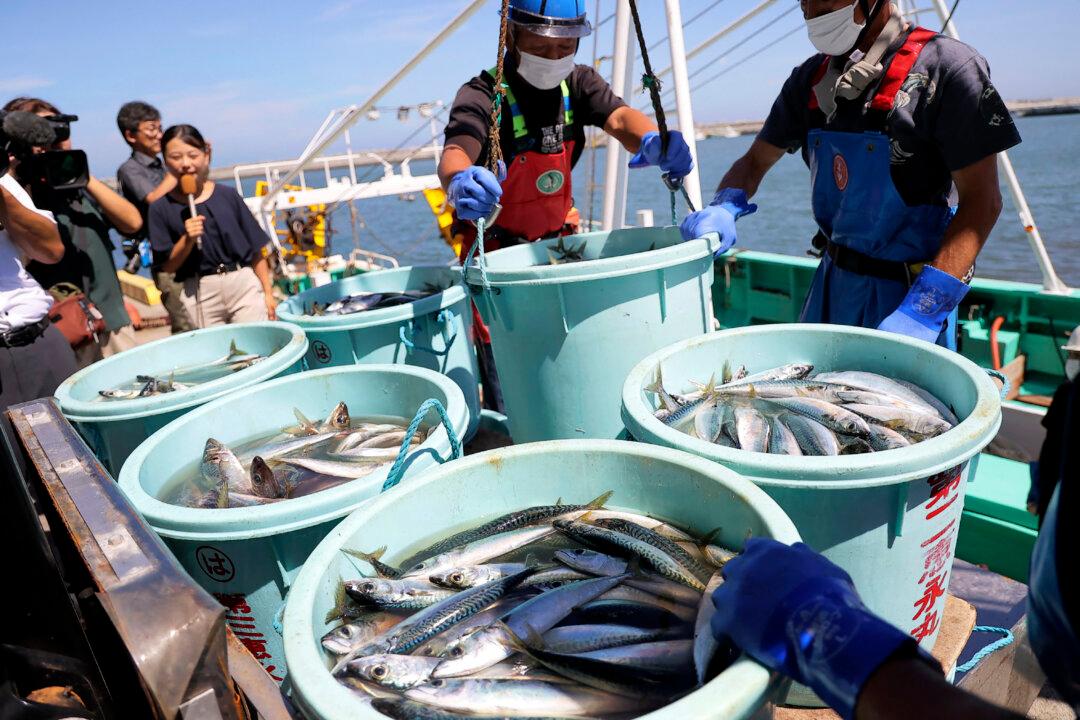Russia is considering joining China in its ban on Japanese seafood imports following Japan’s actions to release treated radioactive wastewater from the wrecked Fukushima nuclear power plant, Russia’s food safety watchdog Rosselkhoznador said on Sept. 26.
China announced a blanket ban on all Japanese aquatic products after Japan began releasing treated radioactive water into the sea on Aug. 24.





